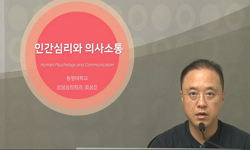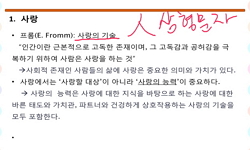본 연구는 자기결정성이론(Self-Determination Theory)에 근거하여 아동이 지각한 어머니의 양육행동척도를 개발하고 타당화 하는 데에 목적이 있다. 기존의 주요 양육행동척도들의 이론적 배경이 ...
http://chineseinput.net/에서 pinyin(병음)방식으로 중국어를 변환할 수 있습니다.
변환된 중국어를 복사하여 사용하시면 됩니다.
- 中文 을 입력하시려면 zhongwen을 입력하시고 space를누르시면됩니다.
- 北京 을 입력하시려면 beijing을 입력하시고 space를 누르시면 됩니다.
https://www.riss.kr/link?id=A102749375
- 저자
- 발행기관
- 학술지명
- 권호사항
-
발행연도
2012
-
작성언어
Korean
- 주제어
-
등재정보
KCI등재
-
자료형태
학술저널
- 발행기관 URL
-
수록면
717-738(22쪽)
-
KCI 피인용횟수
12
- 제공처
- 소장기관
-
0
상세조회 -
0
다운로드
부가정보
국문 초록 (Abstract)
본 연구는 자기결정성이론(Self-Determination Theory)에 근거하여 아동이 지각한 어머니의 양육행동척도를 개발하고 타당화 하는 데에 목적이 있다. 기존의 주요 양육행동척도들의 이론적 배경이 분명하지 않고, 경험적 타당성에 문제가 제기되면서 새로운 양육행동척도 개발에 대한 필요성이 대두되었다. 이에 본 연구에서는 자기결정성이론에 근거한 새로운 개념의 양육행동척도를 개발하고자 ``자율성지지``, ``관여``, ``구조제공``이라는 세 가지 요인으로 구성된 모의 양육행동척도를 제작하였다. 세 요인들을 반영하는 51문항의 예비검사를 서울소재 초등학교 4, 5, 6학년 학생을 대상으로 실시하여 문항의 양호도를 검증하고, 탐색적 요인분석으로 요인구조를 확인한 뒤 문항의 수정과 삭제를 통해 총 23문항으로 구성된 최종검사를 완성하였다. 본검사 실시 자료에 대한 문항 양호도 분석과 척도의 신뢰도 분석을 실시하였으며 확인적 요인분석을 통한 구인타당도 증거를 확보하였다. 또한 모애착과 학교생활적응 변인을 포함하여 구성한 법칙론적 연결망조직 분석을 통해 구인타당도와 준거관련 타당도에 대한 추가적 증거를 확보하였다. 마지막으로, 연구결과를 부모의 양육행동관련 연구에서의 활용성과 부모교육에서의 적용가능성을 중심으로 논의하였다.
다국어 초록 (Multilingual Abstract)
The purpose of the present study was to develop and validate a scale to assess children`s perception of their mothers` parenting behaviors, which was based on the literature reviews on parental dimensions, and self-determination theory (SDT) framework...
The purpose of the present study was to develop and validate a scale to assess children`s perception of their mothers` parenting behaviors, which was based on the literature reviews on parental dimensions, and self-determination theory (SDT) framework and various previous studies on child rearing. Representing core concepts of SDT, 51 items were developed and assembled to construct a preliminary scale. The items represented three factors, which were "mother`s autonomy support," "involvement," and "provision of structure." The preliminary scale was administered to 363 elementary school students in grades 4 through 6. After item analysis and exploratory factor analysis, 27 items were retained for the main test, which then was administered to 731 elementary school students in grades 4 through 6. Results of the item and scale analyses resulted in 23 items as the final scale for the mother`s parenting scale. In the confirmatory factor analysis, three-factor structure was confirmed as the sub-constructs of the perceived mother`s parenting scale. Correlations among perceived mother`s parenting behavior, mother-child attachment, and school adjustment were examined to collect evidences for the criterion-related validity. A test of nomological network through structural equation model analysis using these variables provided additional evidence of the construct validity of the mother`s parenting behavior scale. Furthermore, the structural equation model analysis revealed that the mother-child attachment functioned as a significant predictor and mediator of the autonomy- supportiveness and provision of structure sub-factors of parenting behavior and school adjustment. Discussions followed to suggest application of the scale in reference to mother`s parenting practices.
참고문헌 (Reference)
1 김아영, "학업동기 척도 표준화 연구" 한국학술진흥재단 2002
2 김현욱, "초등학생이 인식한 부모의 양육태도와 문화자본 관계 분석" 학습자중심교과교육학회 9 (9): 101-117, 2009
3 김정옥, "초등학생 부모자녀 관계 향상 프로그램이 어머니의 양육태도에 미치는 영향" 한국가정관리학회 25 (25): 113-125, 2007
4 옥 정, "청소년기 애착 안정성과 우울성향의 관계 : 지각된 유능감(Perceived Competence)의 매개효과를 중심으로" 梨花女子大學校 大學院 1998
5 이 숙, "자녀가 지각한 부모의 양육태도 및 이에 영향을 주는 요인" 이화여자대학교 대학원 1988
6 이명희, "자기결정성이론에 근거한 한국형 기본 심리 욕구 척도 개발 및 타당화" 한국사회및성격심리학회 22 (22): 157-174, 2008
7 오기선, "어버이와 자녀관계 진단 검사요강" 코리안 테스팅 센터 1965
8 김지신, "어머니의 전통-근대 가치관 및 양육행동과 아동의 사회적 행동" 梨花女子大學校 大學院 1996
9 박성연, "어머니의 양육행동척도」표준화를 위한 예비 연구" 28 (28): 141-156, 1990
10 유연숙, "아동이 지각한 어머니와 대리양육자의 양육태도, 애착 및 정서부적응 관계" 405-410, 2002
1 김아영, "학업동기 척도 표준화 연구" 한국학술진흥재단 2002
2 김현욱, "초등학생이 인식한 부모의 양육태도와 문화자본 관계 분석" 학습자중심교과교육학회 9 (9): 101-117, 2009
3 김정옥, "초등학생 부모자녀 관계 향상 프로그램이 어머니의 양육태도에 미치는 영향" 한국가정관리학회 25 (25): 113-125, 2007
4 옥 정, "청소년기 애착 안정성과 우울성향의 관계 : 지각된 유능감(Perceived Competence)의 매개효과를 중심으로" 梨花女子大學校 大學院 1998
5 이 숙, "자녀가 지각한 부모의 양육태도 및 이에 영향을 주는 요인" 이화여자대학교 대학원 1988
6 이명희, "자기결정성이론에 근거한 한국형 기본 심리 욕구 척도 개발 및 타당화" 한국사회및성격심리학회 22 (22): 157-174, 2008
7 오기선, "어버이와 자녀관계 진단 검사요강" 코리안 테스팅 센터 1965
8 김지신, "어머니의 전통-근대 가치관 및 양육행동과 아동의 사회적 행동" 梨花女子大學校 大學院 1996
9 박성연, "어머니의 양육행동척도」표준화를 위한 예비 연구" 28 (28): 141-156, 1990
10 유연숙, "아동이 지각한 어머니와 대리양육자의 양육태도, 애착 및 정서부적응 관계" 405-410, 2002
11 오성심, "부모의 양육방식에 대한 아동의 지각과 정의적 특성과의 관계" 11 (11): 1982
12 허재경, "부모애착안정성과 사회적 지지가 학교적응에 미치는 영향" 한국여성심리학회 10 (10): 483-495, 2005
13 김아영, "모의 양육행동이 아동의 양육행동 지각, 학업적 자기효능감 및 학업성취도에 미치는 효과 분석: 자기조절동기의 매개효과를 중심으로" 한국교육심리학회 24 (24): 563-582, 2010
14 정원식, "가정환경 진단검사 요강" 코리안 테스팅 센터 1970
15 이숙, "「어머니의 양육행동척도」타당화를 위한 일 연구" 29 (29): 189-201, 1991
16 박성연, "「어머니의 양육행동척도」개발에 관한 일 연구" 27 (27): 151-165, 1989
17 Arzubiaga, A., "Transcending deficit thinking about Latinos’ parenting styles: Toward an ecocultural view of family life, In Charting New Terrains of Chicana(o)/Latino(o) Education" Hampton press 93-106, 2000
18 Sierens, E., "The synergistic relationship of perceived autonomy support and structure in the prediction of self-regulated learning" 79 : 57-68, 2009
19 Grolnick, W. S., "The role of parents in facilitating autonomous self-regulation for education" 7 (7): 164-173, 2009
20 Jeynes, W. H., "The relationship between parental involvement and urban secondary school student academic achievement" 42 (42): 82-110, 2007
21 Eisenberg, N., "The relations of parental characteristics and practices the children’s vicarious emotional responding" 62 (62): 1393-1408, 1991
22 Dornbusch, S. M., "The relation of parenting style to adolescent school performance" 58 : 1244-1257, 1987
23 Grolnick, W. S., "The psychology of parental control: How well-meant parenting backfires" Lawrence Erlbaum Associates, Inc. 2002
24 Armsden, G. C., "The inventory of parent and peer attachment individual differences and their relationship to psychological well-being in adolescence" 16 (16): 427-454, 1987
25 Steiger, J. H., "Structural model evaluation and modification: An interval estimation approach" 25 : 173-180, 1990
26 Maccoby, E. E., "Socialization in the context of the family: Parent-child interaction, In Handbook of child psychology: Vol. 4. Socialization, personality, and social development" Wiley 1-101, 1983
27 Skinner, E. A., "Six dimensions of parenting: A motivational model" 5 (5): 175-237, 2005
28 Bentler, P. M., "Significance tests and goodness of fit in the analysis of covariance structures" 88 : 588-606, 1980
29 Reeve, J., "Self-determination theory applied to educational settings, In Handbook of self-determination research" University of Rochester Press 184-203, 2002
30 Aviezer, O., "School competence in young adolescence: Links to early attachment relationships beyond concurrent self-perceived competence and representations of relationships" 26 (26): 397-409, 2002
31 Sears, R. R., "Patterns of Child Rearing" Stanford University Press 1957
32 Darling, N., "Parenting style as context: An integrative model" 113 (113): 487-496, 1993
33 Hill, N. E., "Parental involvement in middle school: A meta-analytic assessment of the strategies that promote achievement" 45 (45): 740-763, 2009
34 Walters, J., "Parent-child relationships: A review, 1970-1979" 42 (42): 807-822, 1980
35 Grolnick, W. S., "Parent style associated with children’s self-regulation and competence in school" 81 (81): 143-154, 1989
36 Skinner, E. A., "Motivation in the classroom: Reciprocal effects of teacher behavior and student engagement across the school year" 85 (85): 571-581, 1993
37 Mize, J., "Mother’s social coaching, mother-child relationship style, and children’s peer competence: Is the medium the message?" 68 : 312-332, 1997
38 Manongdo, J. A., "Maternal parenting and mental health of Mexican American youth: A bidirectional and prospective approach" 25 (25): 261-270, 2011
39 Aunola, K., "Maternal affection moderates the impact of psychological control on a child’s mathematical performance" 40 (40): 965-978, 2004
40 Xu, Y., "Mainland chinese parenting styles and parent-child interaction" 29 (29): 524-531, 2005
41 Allen, J. P., "Longitudinal assessment of autonomy and relatedness in adolescent family interactions as predictors of adolescent ego development and self-esteem" 65 : 179-194, 1994
42 Deci, E. L., "Intrinsic motivation and self-determination in human behavior" Plenum 1985
43 Grolnick, W. S., "Internalization within the family, In Parenting and children’s internalization of values: A handbook of contemporary theory" Wiley 135-161, 1997
44 Grolnick, W. S., "Inner resources for school achievement: Motivational mediators of children’s perceptions of their parents" 83 (83): 508-517, 1991
45 Grolnick, W. S., "Family process and the development of children’s self-regulation" 34 (34): 3-14, 1999
46 Farkas, M. S., "Examining the components and concomitant of parental structure in the academic domain" 34 : 266-279, 2010
47 Gonzales, A. R., "Examining relationship between parental involvement and student motivation" 17 (17): 99-123, 2005
48 Jang, H., "Engaging Students in Learning Activities: It Is Not Autonomy Support or Structure but Autonomy Support and Structure" AMER PSYCHOLOGICAL ASSOC 102 (102): 588-600, 201008
49 Baumrind, D, "Current parental authority patterns, In Developmental Psychology Monographs, 4(1, part 2)" 1971
50 Moss, E., "Correlation of attachment at school age: Maternal reported stress, mother-child interaction, and behavior problems" 69 (69): 1390-1405, 1998
51 Embretson, S. E., "Construct validity: Construct representation versus nomothetic span" 93 : 179-197, 1983
52 Cronbach, L. J., "Construct validity in psychological tests" 52 : 281-302, 1955
53 Wilcox, W. B., "Conservative protestant child rearing: Authoritarian or authoritative?" 63 : 796-809, 1998
54 Schaefer, E. S., "Children’s reports of parental behavior: An inventory" 36 (36): 413-424, 1965
55 Chao, R. K., "Beyond parental control and authoritarian parenting style: Understanding chinese parenting through the cultural notion of training" 65 (65): 1111-1119, 1994
56 Steinberg, L., "Authoritative parenting, psychosocial maturity and academic success among adolescents" 60 : 1424-1436, 1989
57 Karavasilis, L., "Associations between parenting style and attachment to mother in middle childhood and adolescence" 27 (27): 153-164, 2003
58 Ryan, R. M., "An overview of self-determination theory: An organismic- dialectical perspective, In Handbook of self-determination research" University of Rocherster Press 3-33, 2002
59 Brown, M. W., "Alternative ways of assessing model fit, In Reading and understanding multivariate statistics" American Psychological Association 1993
60 Tucker, L. R., "A reliability coefficient for maximum likelihood factor analysis" 28 : 1-10, 1973
61 Jeynes, W. H., "A meta-analysis of the relation of parental involvement to urban elementary school student academic achievement" 40 (40): 237-269, 2005
62 Schaefer, E. S., "A circumplex model for maternal behavior" 52 (52): 226-235, 1959
동일학술지(권/호) 다른 논문
-
- 한국교육심리학회
- 박병기(Byung Gee Bak)
- 2012
- KCI등재
-
- 한국교육심리학회
- 정미경(Mi Kyung Chung)
- 2012
- KCI등재
-
- 한국교육심리학회
- 서영석(Young Seok Seo)
- 2012
- KCI등재
-
초, 중학교급별 교실목표구조 기본심리욕구, 수업참여간의 구조적 관계 분석
- 한국교육심리학회
- 김종렬(Jong Ryoul Kim)
- 2012
- KCI등재
분석정보
인용정보 인용지수 설명보기
학술지 이력
| 연월일 | 이력구분 | 이력상세 | 등재구분 |
|---|---|---|---|
| 2026 | 평가예정 | 재인증평가 신청대상 (재인증) | |
| 2020-01-01 | 평가 | 등재학술지 유지 (재인증) |  |
| 2017-01-01 | 평가 | 등재학술지 유지 (계속평가) |  |
| 2013-01-01 | 평가 | 등재학술지 유지 (등재유지) |  |
| 2010-01-01 | 평가 | 등재학술지 유지 (등재유지) |  |
| 2008-01-01 | 평가 | 등재학술지 유지 (등재유지) |  |
| 2005-06-16 | 학술지등록 | 한글명 : 교육심리연구외국어명 : Korean Journal of Educational Psychology |  |
| 2005-01-01 | 평가 | 등재학술지 선정 (등재후보2차) |  |
| 2004-01-01 | 평가 | 등재후보 1차 PASS (등재후보1차) |  |
| 2003-01-01 | 평가 | 등재후보학술지 유지 (등재후보1차) |  |
| 2002-01-01 | 평가 | 등재후보학술지 유지 (등재후보1차) |  |
| 1999-01-01 | 평가 | 등재후보학술지 선정 (신규평가) |  |
학술지 인용정보
| 기준연도 | WOS-KCI 통합IF(2년) | KCIF(2년) | KCIF(3년) |
|---|---|---|---|
| 2016 | 2.39 | 2.39 | 2.59 |
| KCIF(4년) | KCIF(5년) | 중심성지수(3년) | 즉시성지수 |
| 2.75 | 3.18 | 3.128 | 0.42 |




 DBpia
DBpia







